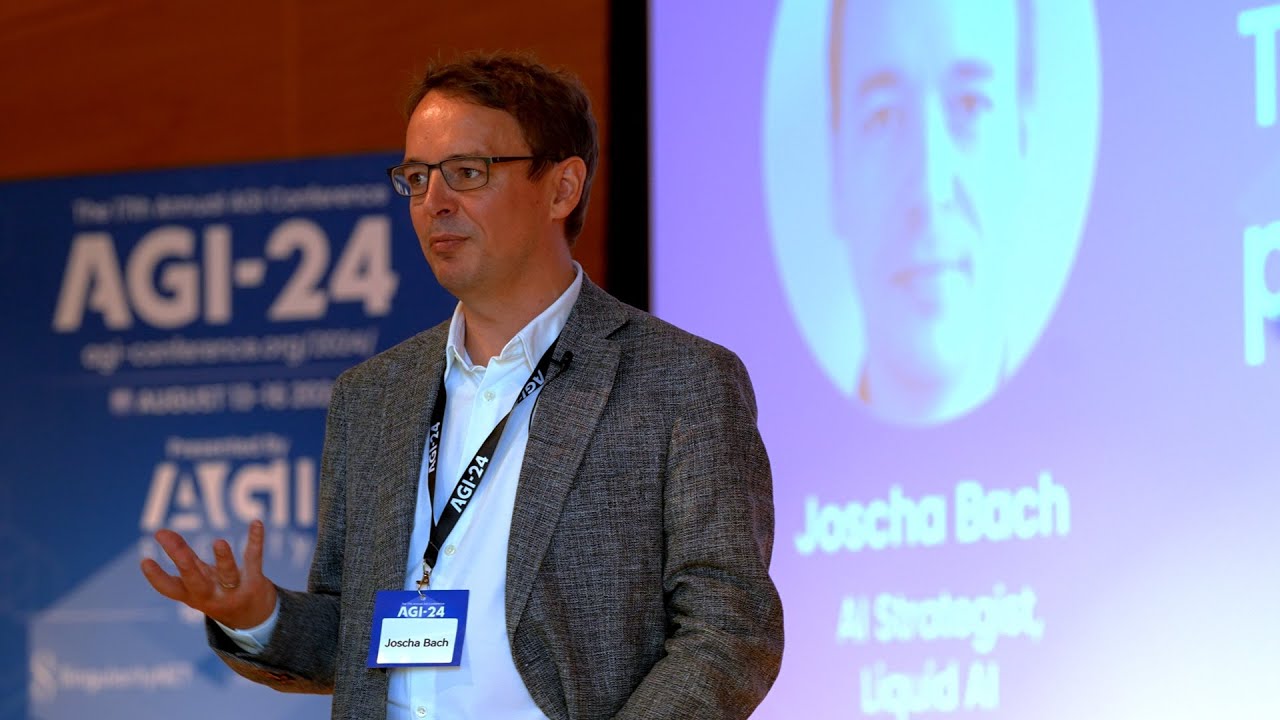In the video, Joscha Bach explores the concept of artificial general intelligence (AGI) and the philosophical implications of consciousness and self-organization in both biological and artificial systems, proposing that living organisms can be viewed as self-organizing software agents. He critiques current AI models and advocates for a more fluid, adaptive approach to AI development, while contemplating the ethical considerations of consciousness in artificial systems and the need for a new framework to study these phenomena.
In the video, Joscha Bach discusses the concept of artificial general intelligence (AGI) and the philosophical implications surrounding consciousness and self-organization in both biological and artificial systems. He reflects on his childhood fascination with computers and the current momentum and hype surrounding AI technologies. Bach introduces the idea of “software spirits,” suggesting that living organisms can be viewed as self-organizing software agents that interact with their environments, evolving and adapting over time. He emphasizes that the essence of life may not lie in physical structures but rather in the underlying software that governs behavior and organization.
Bach draws parallels between ancient animistic beliefs and modern scientific perspectives, arguing that many cultures historically viewed nature as inhabited by spirits or self-organizing entities. He posits that consciousness is a second-order perception, allowing individuals to be aware of their own awareness. This leads him to explore the nature of consciousness, suggesting that it may be a fundamental operator that enhances coherence within cognitive systems. He proposes that consciousness is not merely a byproduct of neural activity but a crucial component that facilitates self-organization and learning in both biological and artificial systems.
The discussion then shifts to the limitations of current AI models, particularly large language models (LLMs). Bach critiques the traditional approach to AI development, which often relies on deterministic algorithms and batch training. He advocates for a more fluid and self-organizing approach to AI, akin to biological systems, where agents can learn continuously and adaptively. He suggests that understanding consciousness and self-organization in nature could inform the development of more sophisticated AI systems that mimic these processes.
Bach also addresses the philosophical implications of consciousness in AI, questioning whether artificial systems can possess consciousness or agency similar to humans. He explores the idea that consciousness may not be unique to humans but could be a more ubiquitous phenomenon in nature, potentially present in various forms across different organisms. This leads to a contemplation of the ethical considerations surrounding conscious AI and the potential for suffering in artificial systems, suggesting that increased consciousness could lead to better regulation and understanding of experiences.
In conclusion, Bach emphasizes the need for a new framework to study consciousness and self-organization in both biological and artificial systems. He proposes that AI could serve as a bridge between mathematics and philosophy, allowing for a deeper understanding of consciousness and its role in shaping cognitive processes. By exploring the principles of self-organization and coherence, researchers may uncover new insights into the nature of consciousness and its implications for the future of AI development.
